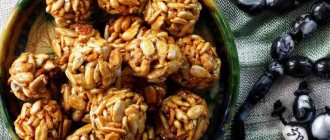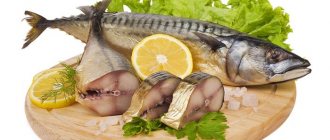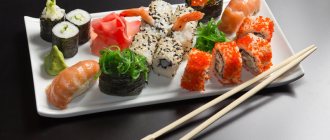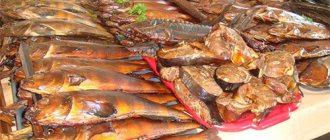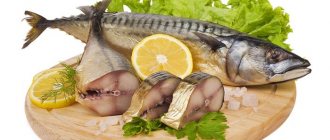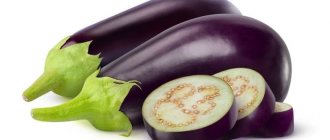Chemical composition and beneficial properties of raspberries
Raspberries are a summer berry that is consumed fresh, jams and preserves are made from it, added to fruit salads, and used as a filling and for decorating desserts. It has a low calorie content (only 46 kcal per 100 g of product), which allows you to consume it without fear of gaining excess weight. But this does not mean that you can eat berries in unlimited quantities, since this can lead to an allergic reaction.
Fresh raspberries
The following substances are present in raspberry berries and leaves:
- vitamins: A, beta-carotene, group B (except B12), C, E, H, K, PP;
- minerals: potassium, calcium, silicon, magnesium, sodium, phosphorus, chlorine, iron, cobalt, manganese, copper, molybdenum.
Women often wonder whether it is possible to eat raspberries during pregnancy and during breastfeeding. This berry has the following beneficial properties:
- strengthens capillaries;
- increases the body's resistance to various diseases;
- normalizes blood clotting;
- removes signs of a cold, fights cough and fever;
- improves mood, gives vigor, eliminates stress, nervous tension and fatigue;
- improves kidney function, causing swelling to disappear;
- improves the condition of skin, hair, nails;
- reduces abdominal pain, eliminates vomiting;
- reduces the level of “bad” cholesterol;
- restores hormonal levels;
- using an infusion of raspberry leaves is effective for diarrhea;
- restores hormonal levels.
For colds, it is recommended to drink raspberry tea. It effectively combats unpleasant symptoms and improves overall well-being.
Raspberries come in garden and forest varieties. Garden berries are more healthy and safe, so it is advisable to eat them during guards.
Raspberry tea and lactation period
Raspberry tea has long been used as a natural remedy to increase lactation. It is believed that raspberries provoke an improvement in the functioning of the mammary glands. Many women drink this warm drink shortly before feeding to increase the amount of breast milk produced. But you should not abuse this tea.
It is enough to drink 1 - 2 cups per day, about 3 - 4 times a week.
What are the contraindications for use during breastfeeding?
Raspberry tea is not recommended for nursing mothers who have the following diseases:
- ulcer;
- gastritis;
- increased acidity;
- kidney disease;
- diabetes mellitus (can be consumed, but in limited quantities).
Is it possible to have raspberry tea while breastfeeding?
Raspberries belong to the category of highly allergenic foods. However, when used in tea, it rarely causes allergies. To minimize the risk of such reactions, it is recommended not to drink this tea for the first time after childbirth.
Raspberry tea can be consumed during breastfeeding no earlier than 2 months after the birth of the child.
Possible negative reactions include:
- redness on the skin;
- rashes;
- itching;
- allergic rhinitis;
- stool disorders;
- exacerbation of colic.
If one or more symptoms occur, it is better to stop using it.
Is it possible to eat raspberries while breastfeeding?
Many nursing mothers are concerned about the question of when they can introduce raspberries into their diet so as not to harm the baby. Below we will talk about the features of eating berries, based on the age of the child.
At 1 month
Experts do not recommend experimenting with food in the first month after birth. At this time, it is advisable to stick to a diet, since the baby’s digestive system is not yet strong, as a result of which he may experience diarrhea or an allergic reaction after eating certain foods.
If you really want to, then you can eat no more than 1-3 raspberries when breastfeeding a newborn.
At 2 months
By this period, the baby’s digestive system has already become slightly stronger, but this does not mean that raspberries can now be eaten in unlimited quantities. Yes, you can eat 1-5 fresh berries a week, but you should also monitor your baby’s reaction. If there is no diarrhea or rash, then the number of berries can be increased.
At 3, 4 and 5 months
This time is the safest to introduce raspberries into your diet. Firstly, the baby’s digestive system is already quite strong, which means it can withstand new foods that are present in the mother’s diet. Secondly, the vitamins and minerals present in the berries have a positive effect on both the body of the woman and the baby.
How to properly eat raspberries during lactation? To begin with, you can eat 1-3 berries, and then watch your baby for 24 hours. If there are no signs of allergy or diarrhea, then the berries can be eaten. The main thing is to buy berries only from trusted sellers, or even better, grow them yourself.
The recommended amount of raspberries per day is no more than 50 g or 3 tablespoons.
Danger and rules for consuming raspberries during breastfeeding
Berries are considered a storehouse of vitamins and minerals, so many women are interested in whether it is possible to eat raspberries while breastfeeding? The main danger of its use during breastfeeding lies in the high probability of developing allergic manifestations in the baby. Therefore, this product is approved for administration 3 months after the birth of the child, not earlier. During this time, the child’s body will be able to adapt to new living conditions and the digestive system will become stronger. The introduction of the product should begin with the consumption of 1 - 2 fresh berries in the morning, after which for 2 - 3 days it is necessary to monitor possible changes in the baby’s well-being.
Important! It is necessary to take a two- or three-day break between meals of unfamiliar food.
If your baby develops itchy rashes on the skin, swelling, redness, runny nose, cough, or changes in stool consistency, you need to exclude raspberries from the menu and it is advisable to switch to a hypoallergenic diet. If painful symptoms do not disappear, you should seek medical help.
You should not eat this berry if you have diabetes because of the high content of sugar compounds and purines. It is strongly recommended not to drink concentrated juices, teas, raspberry tinctures if you have gastritis and/or erosions on the gastrointestinal mucosa.
It is very important not to overeat during lactation. The permissible daily intake is 50 g of berries (3 tbsp.). Before eating, the berries should be thoroughly washed in clean water.
Can a mother eat raspberries while breastfeeding a newborn?
During natural feeding, a nursing woman is attentive to the preparation of her menu. This is due to the direct dependence of the baby’s health on the food consumed by the mother. After all, all the foods that a woman eats enter the child’s body through breast milk. The digestive system of a newborn is not able to digest and assimilate most of the dishes that a young mother is accustomed to, since the child’s gastrointestinal tract is still weakened and not fully formed.
In the first months of lactation, you should not eat berries, including raspberries. Such food is classified as natural allergens. The fruits of the plant in question are allowed to be introduced starting from the age of three months. By this time, the child’s gastrointestinal tract will become stronger, and the likelihood of allergic manifestations will decrease.
Answering the question whether a nursing mother can eat raspberry jam, it can be noted that this berry will help nourish the body of a woman and baby with vitamin C, which helps improve immune properties. This makes it possible to avoid colds. When breastfeeding, raspberry jam can be replaced with berries mixed with granulated sugar. This sweet ingredient is a natural preservative that helps the fruit stay fresh for a long time. This delicacy can be frozen. Regular consumption of raspberries improves the structure of hair and skin, and creates a healthy, light glow on the face.
Can a nursing mother drink raspberries or raspberry leaf tea?
During breastfeeding, pediatricians recommend including drinks with raspberries in the menu. This can be tea made from dried leaves and fruits, warm fruit juice or compote. Doctors are convinced that such use of raspberries will reduce the likelihood of a negative reaction in the baby, since less of the allergen (natural dye) remains in the drink. These substances are able to penetrate into the child's body through mother's milk.
If your baby develops a rash after the introduction of fresh berries, you can try tea made from raspberry leaves. The drink is not inferior to fruits in terms of the amount of useful microelements; it will help prevent the development of a negative response. In addition, many women drink raspberry tea before childbirth to enhance uterine contractions, thereby speeding up the process of giving birth. This drink also prevents the development of pathological processes in the female organs, quickly restores the reproductive system after childbirth, stimulates the production of mother's milk, and helps in getting rid of unwanted pounds. An infusion of raspberry leaves should be used during breastfeeding to eliminate diarrhea.
Raspberries during breastfeeding will perfectly complement the main menu of a nursing mother. The berry has many positive qualities necessary for mother and child. However, before use, the mother should familiarize herself with the contraindications and possible side effects.
Application of raspberries
With gw, you can eat raspberries not only fresh, but also add them to fruit salads, decorate desserts with them, make preserves, jams, and even cook compotes. It can also be used to prepare homemade cosmetic masks for the care of the skin of the face and neck.
Raspberry tea is good to drink for colds and to enhance lactation (1-2 cups 3-4 times a week are enough). At the same time, it is not recommended to abuse this drink and you can drink it only 2 months after giving birth.
You can dry raspberries in the sun, in a special dryer, or in the oven. After heat treatment, it retains its beneficial properties and is easier to digest compared to fresh.
Raspberry tea has a tonic, immune-strengthening and invigorating effect on the human body. It is advisable to brew the drink with natural raspberries, rather than buy ready-made tea, since it usually contains flavorings, preservatives and other harmful substances. This composition negatively affects the health of a nursing woman and baby, and in some cases can even lead to poisoning. If you don’t have fresh raspberries, you can use frozen or dried ones; twigs and fresh raspberry leaves are also suitable - this drink effectively fights high body temperature.
Using raspberries for cosmetic purposes helps to tone the skin and give it elasticity, as well as even out and whiten the complexion. For dull skin and shallow wrinkles, use a decoction based on linden blossom and raspberry leaves. Raspberry juice with butter can cope with acne and pimples. Regular raspberry juice will help improve the condition of oily skin.
Many women after childbirth are faced with such an unpleasant problem as hair loss and worsening of their condition. Special homemade cosmetic masks based on raspberries will help eliminate it.
Raspberries in a plate
Raspberries in various dishes
When a woman feeds a baby, all the beneficial substances are sucked out of her body. If they are deficient, an imbalance may occur, which will lead to the development of various diseases. In this case, the woman constantly wants to eat everything sweet. To solve the problem, you should eat jam. Minimal risk of developing allergies in apple composition. Raspberry and currant jam should be gradually introduced into the diet. Most often, a negative reaction in a baby’s body occurs to apricots, strawberries and cherries.
Beneficial components are also preserved in berries ground with sugar.
Raspberries are allowed for children up to one year old, but they can be included in the diet no earlier than the baby is 6 months old. In this case, you should carefully monitor the condition of the child’s skin. Even with minor symptoms of diathesis, the berry is completely excluded from the diet. Tea is also gradually being introduced into the diet. You should start with one teaspoon per day. Next, carefully monitor your baby’s reaction. It is best to start eating berries that were grown yourself or purchased from trusted gardeners. During lactation, you should never buy questionable preserved food without the appropriate documents from the seller.
Raspberry compote has a positive effect on the body of mother and child. A large amount of vitamins and minerals are found in fresh berries. In winter, it is best to include a frozen version of raspberries in your dishes. Reviews indicate that the fruit helps to easily cope with the symptoms of colds. For this purpose, you can prepare jam or jam yourself.
Recipes
Below are recipes for preparing raspberry-based drinks, dishes and cosmetics.
Raspberry infusion
You will need:
- dry raspberries - 100 g;
- water - 3 glasses.
How to cook:
- Pour boiling water over the raw materials.
- Leave for 30 minutes, strain.
- Drink 1 glass before bed.
Raspberry leaf tea
You will need:
- raspberry leaves (dried or fresh) - 2 tbsp;
- water - 500 ml.
How to cook:
- Grind the raw materials.
- Pour boiling water, cover with a lid, insulate and leave for 20 minutes.
- Strain and drink the drink. If desired, you can add a little honey to the tea.
Raspberry jam
You will need:
- sugar - 1.5 kg;
- raspberries - 1.5 kg.
How to cook:
- Sort the berries from leaves and bugs. Rinse the raspberries thoroughly in salted water, then in plain water and drain in a colander for 10 minutes.
- Take a pan made of copper, stainless steel or brass. Pour raspberries into it, use a masher and add sugar.
- Mix everything carefully and leave for a couple of hours.
- After the specified time has passed, place the container with raspberries on the fire.
- Stirring constantly, bring the mixture to a boil. During cooking, foam will appear on the surface, which should be removed.
- After boiling, let the jam cook for another 5 minutes.
- Place the finished jam in sterilized jars and seal.
Mask against hair loss
Ingredients:
- raspberry juice - 2 tbsp;
- olive oil - 1 tbsp;
- egg - 1 piece;
- pea flour - 2 tbsp.
How to prepare: Mix all ingredients. Whisk.
How to use: Apply the prepared mixture to your hair.
After 30 minutes, rinse with shampoo.
Contraindications
You should refrain from eating raspberries in the following cases:
- diabetes;
- gout;
- increased acidity;
- kidney diseases.
For gastritis and ulcers, it is undesirable to drink raspberry tea, as well as tinctures and concentrated juices, but fruit drinks are allowed.
Possible side effects in a nursing woman and child:
- skin rashes;
- redness of the skin;
- problems with stool;
- allergic rhinitis;
- itching
In all other cases, it is advisable to consult a specialist.
It doesn’t matter what kind of raspberries you include in your diet (red, yellow or black), the main thing to remember is that you cannot overuse them. And it is advisable to start eating raspberries only 3 months after giving birth. If, after consuming the product, the child begins to behave worse, or signs of allergies appear, then raspberries should be abandoned.
How to properly drink raspberry tea during lactation
Raspberry tea when breastfeeding must be prepared independently, using only natural ingredients. You should not buy ready-made store-bought teas. They may contain harmful chemical additives.
- To make raspberry tea as safe as possible for a nursing woman and her baby, it is recommended to give preference to regular black tea, without additives or flavorings.
- Raspberries for this tea can be used fresh, frozen, dried or in the form of jam.
- Avoid drinking tea that is too sweet. Raspberries already contain a lot of sugar.
- If you drink tea with raspberry jam while breastfeeding, you should not add sugar.
Raspberry tea with lemon is also very popular. This drink contains lemon, which enhances the antiviral and anti-inflammatory properties of raspberries and promotes a speedy recovery. This tea is tasty and healthy, but during breastfeeding you need to remember the high risk of allergies to citrus fruits.
It is necessary to gradually introduce tea with raspberries and lemon into the diet, adding ingredients one at a time.
It is important to monitor the baby’s reaction for 2 to 3 days after consuming each new product.
Tea with raspberries during breastfeeding improves your mood, refreshes and invigorates. The main advantage of this drink is its antipyretic and anti-inflammatory properties. It is recommended to use it during colds in order to maintain the immunity of a nursing mother and baby. The main thing is to observe moderation and not get carried away with sugar.

